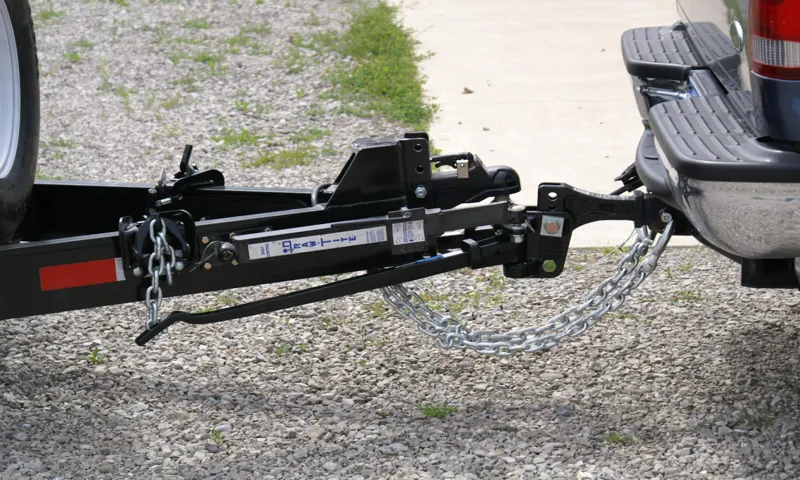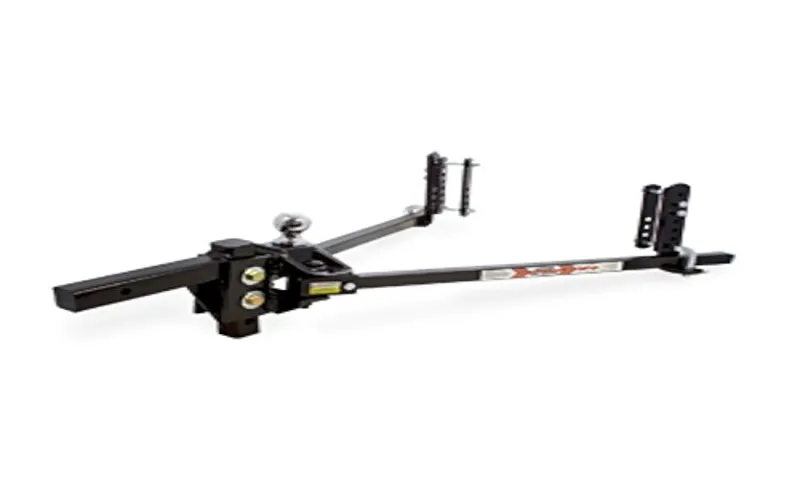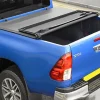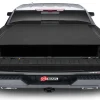Do I need an equalizer hitch? It’s a question that many people ask when embarking on a towing journey. Picture this: you’re planning a fun-filled camping trip with your family, and you’ve got everything packed and ready to go. But here’s the thing – you’re not entirely sure if you need an equalizer hitch for your towing setup.
Well, let me break it down for you. An equalizer hitch is a device that helps distribute the weight of your trailer evenly across all four wheels of your towing vehicle. Think of it as the superhero of towing equipment, ensuring that your trailer and vehicle operate in perfect harmony.
Now, here’s where things get interesting. If you’re towing a small, lightweight trailer with a vehicle that has a high towing capacity, you might not necessarily need an equalizer hitch. It’s like wearing a belt with pants that fit perfectly – it’s nice to have, but not absolutely necessary.
However, if you’re planning to tow a larger, heavier trailer, or if your vehicle has a lower towing capacity, an equalizer hitch becomes a game-changer. It’s like adding a power steering system to your vehicle – it provides that extra level of control and stability, making your towing experience smooth and stress-free. But why is weight distribution so important when towing? Well, imagine driving down a steep hill with a heavily loaded trailer attached to your vehicle.
Without an equalizer hitch, the weight of the trailer can cause the rear of your vehicle to sag, affecting your steering and braking abilities. With an equalizer hitch, the weight is distributed evenly, ensuring that your vehicle maintains its proper alignment and balance. It’s like having a superhero sidekick that has your back, no matter the road conditions or the size of your load.
So, do you really need an equalizer hitch? It all depends on the size and weight of your trailer, as well as your vehicle’s towing capacity. It’s always a good idea to consult your vehicle’s owner’s manual or speak to a towing expert to determine what setup is best for your specific towing needs. But remember, when it comes to towing, safety should always be your top priority.
Table of Contents
What is an Equalizer Hitch?
Do I need an equalizer hitch for my trailer? This is a common question for anyone who is towing a heavy load. An equalizer hitch is a device that helps distribute the weight of a trailer evenly across all of the axles of the towing vehicle, providing stability and control. It is especially important if you are towing a large or heavy load, as it can help prevent swaying and bouncing while driving.
Think of it like a set of training wheels for your trailer. Just as training wheels help a young child learn to ride a bike without falling over, an equalizer hitch helps keep your trailer steady and balanced while on the road. So, if you’re planning on towing a heavy load, investing in an equalizer hitch is definitely worth considering.
It will not only make your journey safer but also give you peace of mind knowing that your trailer is securely connected to your vehicle.
Definition and Purpose
equalizer hitch An equalizer hitch, also known as a weight distribution hitch, is a device that is used to balance the weight of a trailer or caravan being towed by a vehicle. It helps to distribute the weight more evenly across the axles of both the towing vehicle and the trailer, resulting in improved stability and control while towing. The purpose of an equalizer hitch is to prevent sway and improve the overall towing experience.
When a trailer is hitched to a vehicle, the weight distribution can be uneven, with more weight on the rear axle of the towing vehicle. This can cause the front of the vehicle to lift, reducing steering control and potentially causing dangerous sway. By using an equalizer hitch, the weight is redistributed more evenly, ensuring that the front of the vehicle stays down and the rear of the vehicle stays level.
This helps to improve braking and handling, making the towing experience safer and more comfortable. An equalizer hitch typically consists of a hitch receiver, spring bars, and a sway control mechanism. The hitch receiver is attached to the towing vehicle, while the spring bars connect to the trailer’s frame.
The sway control mechanism helps to minimize side-to-side movement, reducing the risk of sway. Overall, an equalizer hitch is an essential tool for anyone towing a trailer or caravan. It provides a safer and more stable towing experience by distributing the weight evenly and reducing the risk of sway.

How Does it Work?
equalizer hitch, How Does it Work, Equalizer Hitch An equalizer hitch is a type of towing hitch that is used to distribute the weight of a trailer evenly across the towing vehicle and trailer axles. It works by using spring bars that attach to the trailer frame and to the hitch head. The spring bars are designed to flex and move as the trailer and towing vehicle move, helping to keep the trailer stable and level.
When the towing vehicle accelerates or decelerates, the weight of the trailer shifts forward or backward. This can cause the towing vehicle to become unbalanced and can lead to unsafe driving conditions. However, with an equalizer hitch, the weight of the trailer is evenly distributed between the towing vehicle and trailer axles.
This helps to improve stability and control when towing, making it safer and more comfortable for both the driver and the passengers. In addition to weight distribution, an equalizer hitch also helps to reduce the amount of sway or fishtailing that can occur when towing a trailer. Sway is a common problem that can be caused by crosswinds, passing vehicles, or improper weight distribution.
It can make towing difficult and dangerous, as the trailer can start to sway back and forth, making it difficult to control. However, with an equalizer hitch, the spring bars apply tension to the trailer, helping to reduce sway and keep the trailer in line with the towing vehicle. Overall, an equalizer hitch is an important tool for towing trailers safely and efficiently.
It helps to distribute weight, improve stability, and reduce sway, making it a must-have for anyone who regularly tows trailers. Whether you’re towing a small utility trailer or a large RV, an equalizer hitch can make a big difference in your towing experience. So, if you’re planning on towing a trailer, be sure to invest in an equalizer hitch for a smoother, safer ride.
Benefits of Using an Equalizer Hitch
Do you need an equalizer hitch for your trailer? The answer depends on a few factors. If you are towing a large trailer or RV, an equalizer hitch can provide numerous benefits. One of the main benefits is improved stability and control while towing.
An equalizer hitch helps distribute the weight of the trailer more evenly between the tow vehicle and the trailer axles. This can help to reduce sway and minimize the risk of jackknifing. Additionally, an equalizer hitch can help to improve braking performance and reduce wear and tear on the tow vehicle’s suspension.
Overall, investing in an equalizer hitch can greatly enhance your towing experience and provide you with peace of mind on the road.
Improved Towing Stability
equalizer hitch, towing stability, benefits
Reduced Sway and Fish-tailing
equalizer hitch, sway, fish-tailing, benefits
Even Weight Distribution
equalizer hitch, weight distribution, benefits, towing experience Are you tired of having an uneven towing experience? An equalizer hitch could be the solution you’ve been looking for! This innovative towing accessory is designed to evenly distribute the weight of your trailer across all axles, resulting in a smooth and balanced ride. Not only does this enhance your comfort and safety on the road, but it also offers several other benefits. With an equalizer hitch, you’ll experience improved steering and control, as the weight distribution prevents the front end of your vehicle from sagging under the heavy load.
This ensures that your brakes and tires are working at their optimal capacity, allowing you to maneuver more easily and with greater confidence. Additionally, an equalizer hitch can help minimize sway and fishtailing, providing a more stable towing experience even in windy or challenging conditions. Say goodbye to white-knuckle drives and hello to a smoother, more enjoyable journey with an equalizer hitch.
When Do I Need an Equalizer Hitch?
Do you find yourself wondering if you need an equalizer hitch for your towing needs? Well, let’s break it down. An equalizer hitch, also known as a weight distribution hitch, is designed to distribute the weight of your trailer evenly across all axles of your towing vehicle. This can be particularly useful when you are towing a heavy trailer or when your vehicle and trailer combination has a significant weight difference.
So, when do you need an equalizer hitch? If you notice that your towing vehicle’s rear end is sagging under the weight of the trailer, or if you feel that the steering and handling of your vehicle are affected by the trailer’s weight, then it might be time to consider an equalizer hitch. This hitch can help level out the load and improve the overall towing experience. Additionally, if you often tow on uneven or hilly terrain, an equalizer hitch can provide added stability and control.
It can help prevent swaying or fishtailing, keeping your trailer more securely attached to your vehicle. It’s important to note that not all towing setups require an equalizer hitch. If you are towing a small, lightweight trailer with a vehicle that has a similar weight, you may not need one.
However, when the difference in weight between your vehicle and trailer becomes more substantial, an equalizer hitch can make a noticeable difference in towing safety and comfort. Ultimately, the decision of whether or not to use an equalizer hitch will depend on your specific towing setup and needs. It’s always a good idea to consult with a towing expert or seek advice from a reputable dealership to determine if an equalizer hitch is necessary for your situation.
Trailer Weight and Size
equalizer hitch, trailer weight, trailer size, towing capacity, weight distribution, towing safety, trailer sway, towing experience. When it comes to towing a trailer, it’s important to consider the weight and size of your rig. Knowing when you need an equalizer hitch can make all the difference in your towing experience.
An equalizer hitch is designed to distribute the weight of the trailer evenly across all axles, reducing the strain on your vehicle and improving towing safety. So, when do you need an equalizer hitch? The answer lies in the weight and size of your trailer. If your trailer is on the heavier side and on the larger size, chances are you will benefit from using an equalizer hitch.
These hitches come in different weight capacities, so it’s crucial to choose one that matches your trailer’s weight rating. Using an equalizer hitch can help prevent trailer sway, which can be extremely dangerous, especially when towing at high speeds. With an equalizer hitch, the weight of the trailer is distributed evenly across all axles, reducing the chances of sway and providing greater stability on the road.
Additionally, using an equalizer hitch can improve your overall towing experience. It helps to level out the load and keeps the trailer and towing vehicle aligned, improving handling and control. This means you’ll have a smoother ride and more confidence behind the wheel.
In conclusion, if you’re towing a trailer that is heavy and on the larger side, investing in an equalizer hitch is a smart move. It will help distribute the weight of the trailer evenly, reducing strain on your vehicle and improving towing safety. With an equalizer hitch, you’ll experience less trailer sway and have a smoother towing experience overall.
So, next time you hit the road with your trailer, make sure you have an equalizer hitch to ensure a safe and comfortable journey.
Towing Vehicle Specifications
towing vehicle specifications, equalizer hitch
Considerations Before Using an Equalizer Hitch
If you’re wondering if you need an equalizer hitch for your towing needs, there are a few considerations to keep in mind. An equalizer hitch is designed to distribute the weight of your trailer evenly across the axles of your tow vehicle, providing better stability and control while towing. This can be especially beneficial if you are towing a larger, heavier trailer or if you are towing in unfavorable road or weather conditions.
However, it’s important to note that not all trailers require an equalizer hitch. Smaller, lighter trailers may not necessarily need the additional support provided by an equalizer hitch. It’s also worth considering your own towing experience and comfort level.
If you feel confident in your ability to control and stabilize your trailer without the use of an equalizer hitch, it may not be necessary. Ultimately, the decision to use an equalizer hitch should be based on your specific towing situation and preferences.
Cost and Installation
equalizer hitch installation
Maintenance and Upkeep
maintenance and upkeep, equalizer hitch
Conclusion
So, do you really need an equalizer hitch? Well, let me put it this way: an equalizer hitch is like the James Bond of towing. It’s sleek, smart, and always gets the job done with style. Just like Bond needs his gadgets to complete his missions, you might need an equalizer hitch to ensure a smooth and safe towing experience.
Think of it as the ultimate wingman for your trailer. It knows how to distribute weight evenly, keeping your rig balanced and steady on the road. It’s like having your very own personal trainer for towing, making sure you’re in top shape to handle any challenge that comes your way.
And let’s not forget about the added safety benefits. With an equalizer hitch, you can say goodbye to the dreaded trailer sway that can turn even the most composed driver into a white-knuckled mess. It’s like having a secret weapon to combat the forces of nature, ensuring a confident and controlled towing experience.
But aside from its practical benefits, an equalizer hitch is also a statement. It tells the world that you’re not just any ordinary driver – you’re a true towing enthusiast who takes pride in their craft. It’s like wearing a tuxedo to a casual dinner party; it may not be necessary, but it certainly ups your game and makes a lasting impression.
So, while you might not technically need an equalizer hitch, why settle for anything less than the best? Embrace the Bond within you and invest in the ultimate towing accessory. Trust me, you’ll be glad you did when you’re cruising down the road, feeling like a true towing hero.
FAQs
What is an equalizer hitch and do I need one?
An equalizer hitch is a type of towing accessory that helps distribute the weight of the trailer more evenly across the tow vehicle and trailer axles. Whether or not you need an equalizer hitch depends on the weight of your trailer and the towing capacity of your vehicle. If you are towing a heavy trailer or experiencing excessive sagging or swaying while towing, an equalizer hitch can provide additional stability and control. It is recommended to consult with a professional to determine if an equalizer hitch is necessary for your specific towing setup.
How does an equalizer hitch work?
An equalizer hitch works by using spring bars and a weight distribution system to evenly distribute the weight of the trailer across the tow vehicle and trailer axles. The spring bars are attached to the trailer frame and the hitch head, creating tension that helps level the tow vehicle and reduce sagging. This redistribution of weight improves stability and control while towing.
Can I use an equalizer hitch on any tow vehicle?
Equalizer hitches are designed to be compatible with most tow vehicles and trailers. However, it is important to check the towing capacity and specifications of both your vehicle and trailer before using an equalizer hitch. Some vehicles may have limitations or specific requirements for towing accessories, so it is best to consult with a professional to ensure proper compatibility.
What are the benefits of using an equalizer hitch?
Using an equalizer hitch can provide several benefits, including improved stability, reduced swaying, and increased control while towing. It can also help prevent excessive sagging of the tow vehicle and provide a more level and balanced towing setup. Additionally, an equalizer hitch can help minimize wear and tear on the tow vehicle and trailer suspension components.
Are there any drawbacks to using an equalizer hitch?
While an equalizer hitch offers many benefits, there are a few potential drawbacks to consider. First, equalizer hitches can be more expensive than other types of towing accessories. Additionally, they can add extra weight to the towing setup, which may slightly reduce fuel efficiency. It is also important to properly set up and maintain an equalizer hitch to ensure optimal performance.
Can I install an equalizer hitch myself or should I seek professional installation?
While it is possible to install an equalizer hitch yourself, it is recommended to seek professional installation. Proper installation is crucial for the safe and effective use of an equalizer hitch. A professional can ensure that the hitch is installed correctly, the weight distribution is properly calibrated, and all components are in working order. They can also provide guidance on how to use and adjust the hitch correctly.
Is an equalizer hitch necessary for all types of trailers?
An equalizer hitch may not be necessary for all types of trailers, particularly smaller and lighter trailers. However, if you are towing a heavier trailer or experiencing instability or sagging while towing, an equalizer hitch can greatly improve your towing experience. It is best to assess your specific towing needs and consult with a professional to determine if an equalizer hitch is necessary for your trailer.



